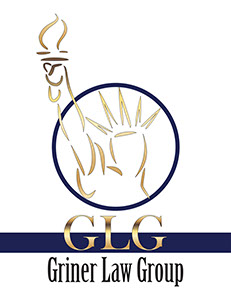

Telephone: (574) 255-1776
Text: (574) 400-5292 (law2)
Fax: (574) 255-2341
Email: GaryGriner@GrinerLaw.com

In every case, we will treat our clients with respect and work hard to achieve the best results

Bankruptcy Q&A Video
Bankruptcy Q&A Video Transcript:
Q: I am considering different options. I don’t know whether I should file bankruptcy. How do I know if bankruptcy is right for me?
A: Deciding whether to file bankruptcy can be a complicated decision. You will need to gather up your financial information and sit down with an experienced bankruptcy attorney so that all of the options can be evaluated. Bankruptcy is an option when you do not have sufficient income to pay your debts, your debts are past due, or you have creditors who are filing lawsuits against you or garnishing your wages, and those kinds of collection efforts.
Q: I’ve heard of Chapter 7 and Chapter 13. What are those?
A: Chapter 13 bankruptcy involves a repayment plan. Essentially all of your creditors would become part of the repayment plan with some of those creditors receiving full payment, some receiving partial payment, and some receiving no payment. A Chapter 13 plan usually lasts five years. Chapter 7 is different. In a Chapter 7 bankruptcy, all of your debts, except for debts that you choose to reaffirm will be discharged.
Q: What is reaffirming?
A: If you file Chapter 7 bankruptcy and wish to keep certain property, for example, a car that is collateral for a loan, then it will be necessary to reach an reaffirmation agreement with the lender. A reaffirmation agreement is a written contract that says even though you are filing bankruptcy and legally could discharge this debt, you decided to not discharge this debt. Instead you are going to repay the debt under the terms of that reaffirmation agreement which will specify interest rate, a monthly payment, all the details that you normally see on a loan document so that you continue to keep your vehicle. Usually we see the reaffirmation agreements with home mortgages and vehicle loans.
Q: What property can I keep?
A: In Indiana there are several types and amounts of property that are exempt - meaning that your creditors cannot take the property and you can keep it when filing bankruptcy. In most cases, our clients are able to keep all of their property. We have a table listing most of the exemptions on the website.
Q: What will happen to my credit rating and how can I re-build credit?
A: Of course bankruptcy is bad for your credit and a bankruptcy generally stays on your credit reports for 10 years. Because credit rating and scoring is so complex and all lenders have different lending standards, it is impossible for anyone to predict exactly how bankruptcy will affect you. It is common for people to qualify for car loans almost immediately after filing bankruptcy - although the down payment and interest rate may be high. Also, sometimes people use secured credit cards as a way of improving credit scores.
Q: If I want more information about bankruptcy what should I do?
A: Please call our office or send us an email to schedule a consultation. On the website, we’ve got a list of all the financial documents that we need. Just bring all of that stuff in for your appointment and we’ll review it and discuss your options fully.
2827 Lincolnway East Mishawaka, IN 46544 | Telephone: (574) 255-1776 | Text: (574) 400-5292 (law2) | Fax: (574) 255-2341
Gary Griner@GrinerLaw.com
Copyright 2020 GrinerLaw.com / Site By CW Productions
The information contained within this website is not legal advice. To obtain legal advice you must consult with an attorney at GRINER LAW GROUP. The material in this website is only for information purposes and may not be up to date. Nothing in this website is intended to create an attorney-client relationship.
GRINER LAW GROUP is licensed to practice law only in the State of Indiana.
